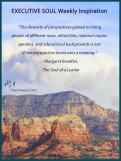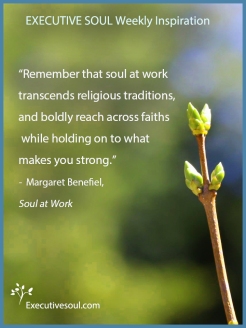Outside my window, the storm rages. Hurricane Sandy, possibly the worst storm ever to hit the east coast of the U. S., forces us to hunker down, batten down the hatches, and wait her out. Animals restless, the dog pleads with us to give her a real walk.
All around me, the political storm rages, much like Hurricane Sandy. With eight days to go before the U.S. election, attacks sharpen, hostilities increase. Political hostilities, possibly the worst ever, tempt me to hunker down, batten down the hatches, and wait it out. I’m beginning to understand those Facebook friends who say they don’t want to see any more political discussion.
Yet part of me knows there is another way.
I watch the trees outside my window. They bend in the storm. Their branches blow wildly in the wind. Yet they remain strong. Their deep roots and flexible limbs allow them to weather the storm while standing in the midst of it. While doing so, the trees provide shelter. Their root systems prevent the ground from eroding.
In Healing the Heart of Democracy, Parker Palmer brilliantly delineates the political storm in which we find ourselves. He demonstrates how consumerism, scapegoating, and the mass media which fuels their fires erode the soil of democracy.
But Palmer doesn’t stop there. He shows us how we can be like the trees, deeply rooted and grounded, flexible, standing strong in the midst of the storm. He shows us how we can provide shelter, how, by developing strong roots, we can be grounded leaders who prevent the soil of our society from eroding. He explores the outward and visible infrastructures of democracy and proposes ways to make better use of them. For example, school teachers can be grounded leaders by helping students connect history lessons to their own lives. History lessons about Nazi Germany parallel discrimination against minorities today, close to home; any culture carries within it the seeds of oppression and violence.
Furthermore, in school, students can practice democracy as well as learn about it. Or students can engage in service learning opportunities in their communities, integrating their classroom work with the world around them.
Palmer also explores how congregations and community groups can practice deep hospitality, welcoming the stranger, engaging more fully with those who are different. He points out how often relationships in such groups become superficial and how learning to risk vulnerability with one another enriches the soil of community.
Grounded leaders in schools, congregations, community groups, and (I would add) businesses can build the relationships and ways of being that form the foundation of a democracy.
I ask myself, “In what ways am I like the deeply rooted tree in the storm, exhibiting grounded leadership, providing shelter and preventing erosion in the political storm? In what ways can I learn from the tree, incorporating more of Palmer’s practices into my leadership?”
May we all resist the urge to hide from the important tasks of shaping the world, instead remaining fully engaged and deeply rooted as political storms swirl around us.

















Margaret- Thank you for this blog post- I will look for Palmer’s book. Indeed the trees have much to teach us!! Stay safe in this storm!
Yes, the trees have much to teach us — well put, Sarah. You are in the direct path of the storm in Pennsylvania, aren’t you? May it be much milder than expected for you.
I like your metaphor, Margaret. It is a great goal to stay in contact while this political storm rages around us and we stay rooted in our deep values. It is not easy, at least for me. There is little real dialog or deep thoughtfulness about complex issues. Rather I feel assaulted by extreme rants which often contain outright lies and/or simplistic positions.
Places for real exchange of ideas and values are rare. Indeed, most churches shy away from anything political, unlike the Quaker meetings I have known. My knitting guild does not want anyone talking politics at meetings. It is not “nice.” There is a little dialogue possible on Face Book; the people who are of a different political view from me, or who are just tired of the strong feelings, have “un-friended me.” My husband listens/reads opinions of those who think differently and mostly just shakes his head in disbelief. Staying engaged and in touch is hard in this life in which neighbors barely know each other. Focusing on my roots and values is important for my own sanity.
Donna, thank you for articulating so clearly the challenges we face in seeking deep dialogue. We don’t have the depth of relationship with one another in most groups, nor the listening or analytic skills, to move below the surface. I think what Parker Palmer is saying is that we need to rebuild the fabric of community, including deeper relationships and better communication skills. This is a long, slow process. Perhaps we can look for where the fertile ground is to begin sowing seeds. As you mention, Quaker meetings often welcome deeper dialog. Might there be a church or community group that would welcome a “Healing the Heart of Democracy” discussion? We can start with baby steps.
Thank you Margaret for a refreshing perspective.
Deep hospitality – what a warm and grounding phrase. Rooting ourselves deeply as our branches reach up and outward, to shelter, protect and support one another as together we create and re-create the strength and beauty of our world. Thank you for this reminder, Margaret.
I really appreciated the thoughtful leadership that is inherent in this response to the current weather and political storms.
Margaret, the same spirit (well that is biblical), must have spoken to you yesterday that spoke to me! Tilden led us in a three-part meditation yesterday that, in the third stage, led me outside to commune with the trees as the fringes of the storm were bearing in. I wanted to stand in the mist of the rain and wind as does all of nature, and what I discovered in that exercise while watching the trees is that nature remains as it is during a storm or otherwise. The tree may respond to the blowing wind, but it just is. It exists as it is no matter what is going on around it. I thought to myself, why can’t I be like that? Just be–no matter the storm raging around me. Stay true to who I am and trust that all will be as the One beyond naming has intended.
Dear Therese and Margaret- thank you for the image from one who hopes to stay rooted/grounded throughout this stormy period of environmental, political, and personal challenge. namaste, Pat
I’m glad again for the faithfulness of your rooted spirituality and writing, dear Margaret. Your article re-reminded me of the wisdom in one of my paintings of the tree that I use for meditation (http://www.listenforjoy.com/art/somethingancientdeepens.html). Soon I hope to share a new image called “Resilience” which also uses the roots as metaphor for connection, durability, and healing. Thanks be for the other beings of the earth who are also our teachers in times like these!
What a beautiful painting, Melanie! I love that there is so much more below the ground than above the ground — we need to be reminded of that. I look forward to seeing your “Resilience” image, too. Thank you for you wonderful ministry in art.
Democracy is unique legacy of the enlightenment, together with the equality, openness, and freedom which are integral to it.
Do you think democracy is only possible because of the Enlightenment, Ken? I tend to think not. The ancient Greeks, for example, had a form of democracy.
Exceptional quality of thought. Keep seeding minds as much as possible ! In the churches around Durban , South Africa we could do with much more of this kind of input , we are not famous for depth of understanding history , innovative thought etc.